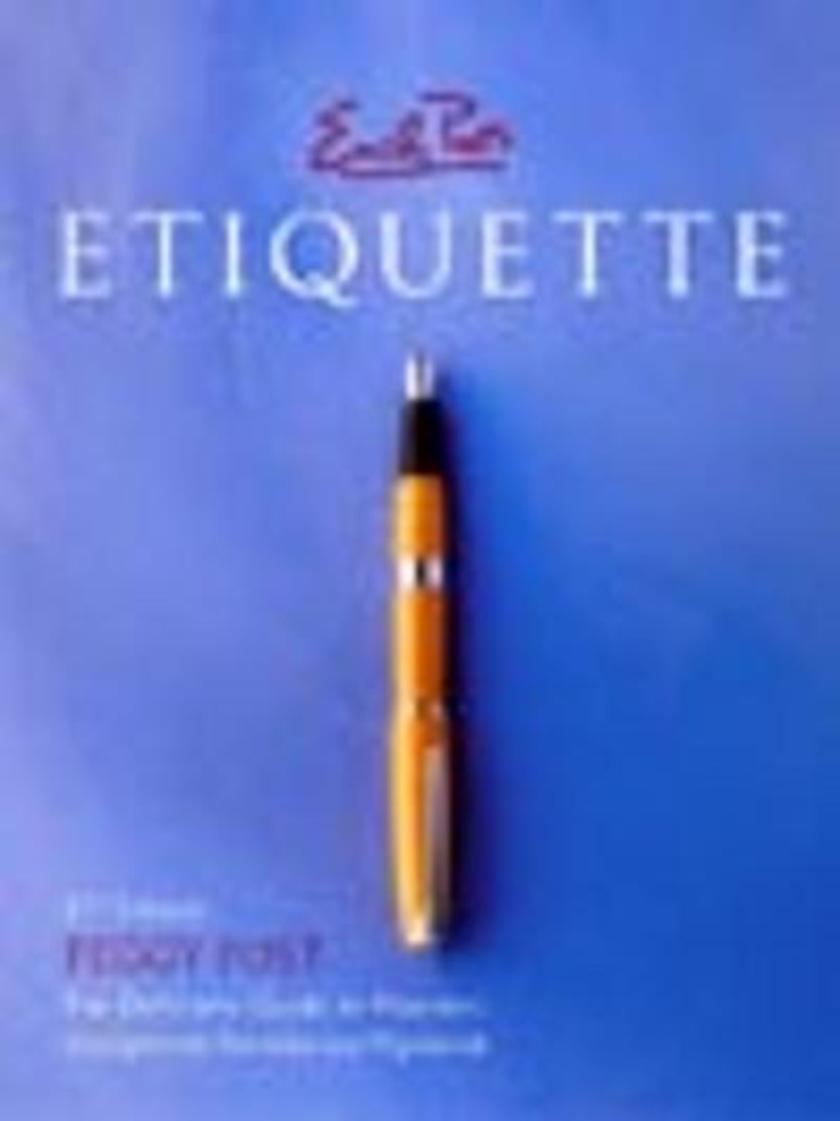
HarperCollins e-books
¥221.49
For the first time in its history, this American classic has been completely rewritten. Peggy Post gives us etiquette for today's times. Read by millions since the first edition was published in 1922, Emily Post the most trusted name in etiquette has always been there to help people navigate every conceivable social situation. The tradition continues with this 100 percent revised and updated edition, which covers the formal, the traditional, the contemporary, and the casual.Based on thousands of reader questions, surveys conducted on the Emily Post Institute and Good Housekeeping Web sites, and Peggy's travels across the country, the book shows how to handle the new, difficult, unusual, and everyday situations we all encounter. The definition of etiquette a code of behavior based on thoughtfulness has not changed since Emily's day. The etiquette guidelines we use to smooth the way change all the time.This new edition resolves hundreds of our key etiquette concerns: dealing with rudeness, netiquette, noxious neighbors, road rage, family harmony, on-line dating, cell phone courtesy, raising respectful children and teens, and travel etiquette in the post-9/11 world...to name just a few.Emily Post's Etiquette, 17th Edition also remains the definitive source for timeless advice on entertaining, social protocol, table manners, guidelines for religious ceremonies, expressing condolences, introductions, how to be a good houseguest and host, invitations, correspondence, planning a wedding, giving a toast, and sportsmanship.Peggy Post's advice gives us the confidence of knowing we're doing the right thing so we can relax and enjoy the moment and move more easily through our world. Emily Post's Etiquette, 17th Edition will be the resource of choice for years to come.

The Mission Chinese Food Cookbook
¥221.49
From Danny Bowien, chef and cofounder of the tremendously popular Mission Chinese Food restaurants, comes an exuberant cookbook that tells the story of an unconventional idea born in San Francisco that spread cross-country, propelled by wildly inventive recipes that have changed what it means to cook Chinese food in America Mission Chinese Food is not exactly a Chinese restaurant. It began its life as a pop-up: a restaurant nested within a divey Americanized Chinese joint in San Francisco's Mission District. From the beginning, a spirit of resourcefulness and radical inventiveness has infused each and every dish at Mission Chinese Food. Now, hungry diners line up outside both the San Francisco and New York City locations, waiting hours for platters of Sizzling Cumin Lamb, Thrice-Cooked Bacon, fiery Kung Pao Pastrami, and pungent Salt-Cod Fried Rice.The force behind the phenomenon, chef Danny Bowien is, at only thirty-three, the fastest-rising young chef in the United States. Born in Korea and adopted by parents in Oklahoma, he has a broad spectrum of influences. He's a veteran of fine-dining kitchens, sushi bars, an international pesto competition, and a grocery-store burger stand. In 2013 Food & Wine named him one of the country's Best New Chefs and the James Beard Foundation awarded him its illustrious Rising Star Chef Award. In 2011 Bon Appétit named Mission Chinese Food the second-best new restaurant in America, and in 2012 the New York Times hailed the Lower East Side outpost as the Best New Restaurant in New York City. The Mission Chinese Food Cookbook tracks the fascinating, meteoric rise of the restaurant and its chef. Each chapter in the story—from the restaurant's early days to an ill-fated trip to China, to the opening of the first Mission Chinese in New York—unfolds as a conversation between Danny and his collaborators, and is accompanied by detailed recipes for the addictive dishes that have earned the restaurant global praise. Mission Chinese's legions of fans as well as home cooks of all levels will rethink what it means to cook Chinese food, while getting a look into the background and insights of one of the most creative young chefs today.
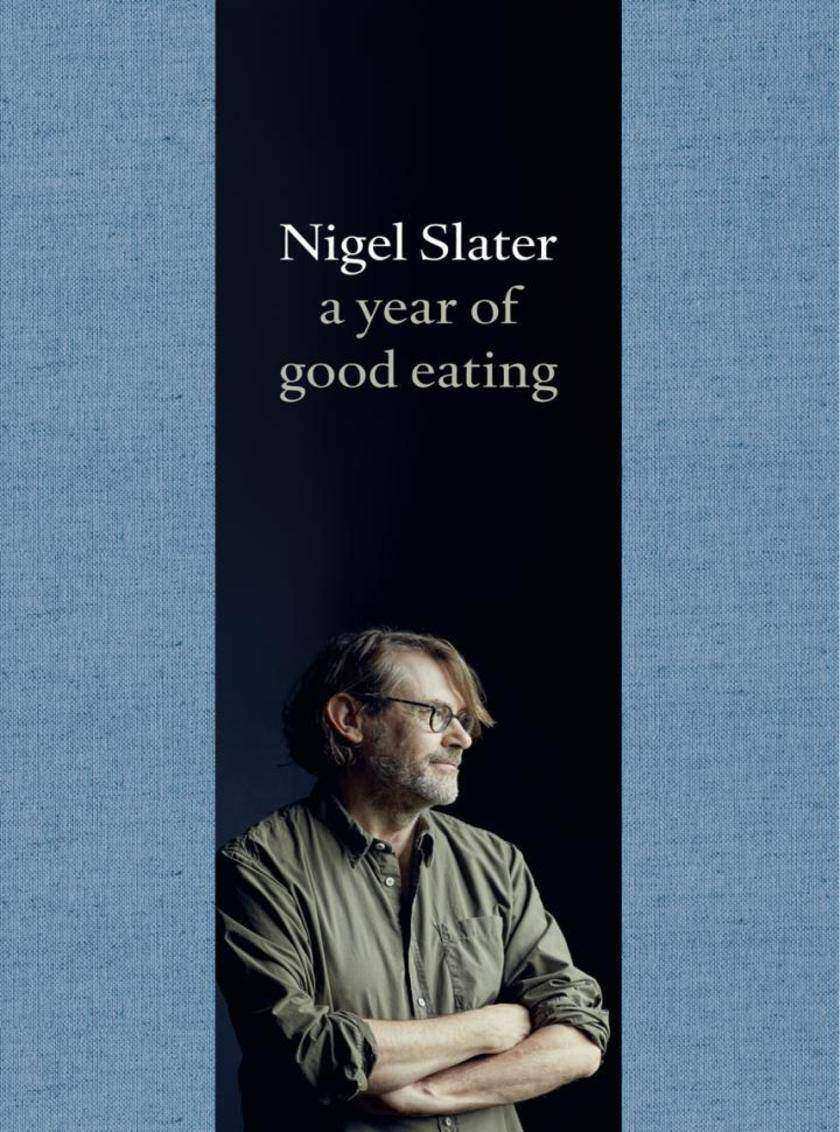
A Year of Good Eating: The Kitchen Diaries III
¥221.12
An immediate new classic from Nigel Slater. Over 250 recipes, moments and ideas for good eating, with extra-special seasonal sections for quick, weeknight eats. The third instalment of Nigel Slater’s classic Kitchen Diaries series, A Year of Good Eating explores the balance and pleasure in eating well throughout the year. The leisurely recipes and kitchen stories of the Diaries are ingeniously interspersed with seasonal sections of quick, weeknight suppers in the style of Nigel’s most recent bestseller Eat. A salmon pie with herb butter sauce or an asparagus and blue cheese tart for when you have time to cook; roasted summer vegetables with sausages or quick baked eggs and greens for when you need to get dinner on the table fast. With Nigel’s characteristically simple recipes and inspiring writing, this new book will make good eating a joy, every day of the year.

A Love for Food: Recipes and Notes for Cooking and Eating Well
¥221.12
The ultimate in delicious, fresh food from the company who are dedicated to growing, producing and cooking real food. The Daylesford recipe for delicious eating is simple - organic produce of the utmost quality. Ingredients from local producers, seasonal crops, humanely-reared meat and a simplified supply chain guarantees food that’s fresh, ethically-produced and, most importantly, full of flavour. This beautiful book will help you make Daylesford's award-winning recipes at home, showing you how to live healthily and simply throughout the food calendar year. With everything – from seven-seed sourdough bread to quintessentially English spiced apple cake, as well as delicious meat and game dishes, including Daylesford’s favourite rabbit, cider and mustard pie – the principles of good wholesome food and seasonality lie behind each carefully crafted dish. Mark every season, with ideas on how to use a glut of vegetables from your garden, tasty jams and relishes to stock your winter larder and mouth-watering fruit confections for the summer months. This is the essential cookery book for organic food lovers everywhere.
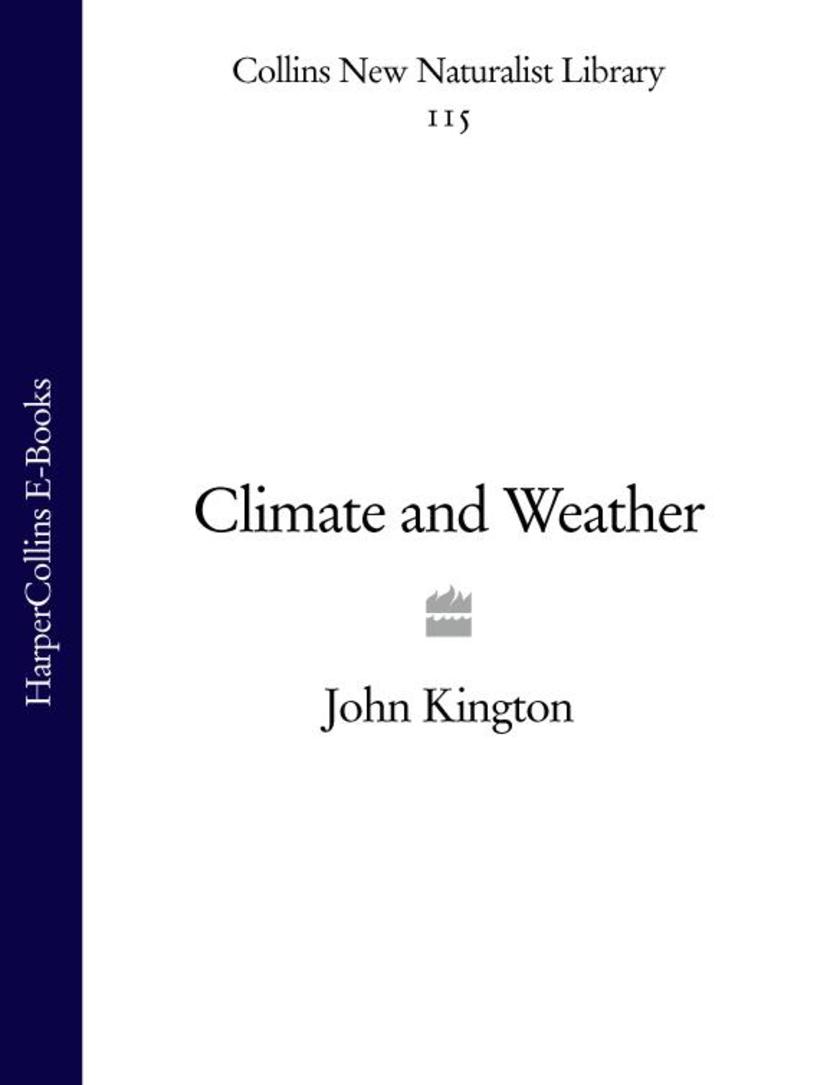
Climate and Weather (Collins New Naturalist Library, Book 115)
¥221.12
Reviewing the history and causes of climatic change and evaluating regional models, this New Naturalist volume offers an important analysis of climatic variations. Much has happened in our knowledge of climate and weather over the past fifty years. The recording of relations between weather and natural history has continued to be of constant interest, with the weather providing a continual and essential backdrop to natural history accounts. But the significance of this backdrop has been very much widened by our better understanding of climate change and its effects on flora, fauna and biodiversity and also by our increased knowledge of historical climates and weather events. In this timely addition to the New Naturalist Library, leading climatologist John Kington offers a comprehensive and up-to-date survey of the diverse climate of the British Isles. Examining the ways in which regional climates evolve from the interplay of meteorological conditions and geography of the British Isles, the author analyses the climatic characteristics and provides a historical overview of changing weather patterns, which is complemented by fascinating and never-before published photographs. Kington reviews the many ways in which people have observed and recorded weather conditions throughout the ages. It is a story based on a rich and varied resource stretching back 2000 years. This approach has allowed climatic trends, anomalies and extremes to be identified over the past two millennia, putting our present experience of weather into striking perspective.

Men of War: The Changing Face of Heroism in the 19th Century Navy (Text Only)
¥221.12
Through the lives of three outstanding naval officers – each considered the most brilliant commander of his generation – David Crane offers a unique portrait of the Royal Navy at a time when it held unchallenged dominion over the world's oceans. Although all three died young, their careers covered virtually every war of significance in which the navy was involved during the nineteenth century. They fought against French and Americans, Russians, Turks, Egyptians, Indians and Chinese, in fleet engagements and naval bombardments, on the walls of Canton and the banks of the Mississippi, against Malay pirates and sepoy mutineers. As an eleven-year-old volunteer, Frank Hastings saw action at Trafalgar, and he went on to be revered as a hero of the Greek War of Independence. Yet, as the architect and captain of the first successful steam warship and the champion of gunnery and total war, he unwittingly prepared the way for much that would be bloodiest in the century ahead. Nobody who saw him in the trenches of the Crimea would ever forget William Peel's air of inviolable self-mastery under fire, and it was the same in India, where he could ride through a landscape of decomposing corpses as if it were some mythological world conjured up to try his knightly resolve. What was it that enabled a man of his intelligence, temperament, piety and background to fight with such brilliance in defence of an Ottoman Empire that was repugnant to every tenet he held most strongly? If James Goodenough chased Glory as assiduously as Hastings and Peel had done, it was the Glory of the next world, and not this. Throughout his career he strove to reconcile the demands of his faith and his profession, but when he finally met his martyrdom at the hands of the 'savages' of the Pacific islands, a shocked nation was left to face up to the inconsistencies, hypocrisies and self-deceptions on which floated its vision of divine election. Combining thrilling scenes of battle with acute psychological insight, Men of War provides a remarkable picture of the nature of courage, command and warfare. Note that it has not been possible to include the same picture content that appeared in the original print version.
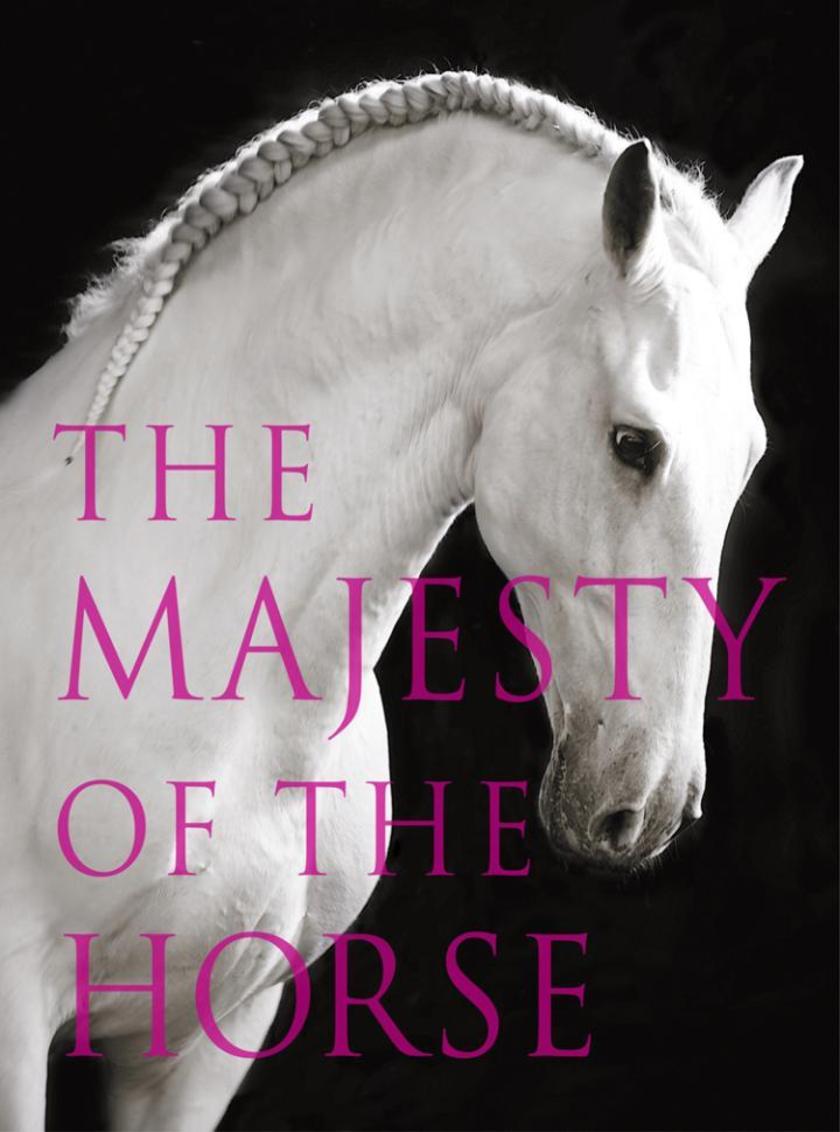
The Majesty of the Horse:An Illustrated History
¥221.12
The Majesty of the Horse is a celebration of an animal that has shaped the fate of mankind. Written as a glorious celebration of this noblest of animals, the book explores the sheer beauty and grandeur of horses, revealing the central role they have played in human societies throughout the world and across the ages. The book showcases equine photographer Astrid Harrisson’s amazing portraiture and stunning images of horses in motion, with pictures that capture the essence of many different breeds. It pays homage not only to the physical splendour of the horse – its grace, strength,and extraordinary adaptability – but also to the animal’s remarkable diversity. Equestrian specialist Tamsin Pickeral traces the evolution of the most significant and fascinating breeds, among them , the tiny, fiery Caspian, a native of the Caspian Sea’s south shore; the proud Thoroughbred; the genetically pure Icelandic Pony; the heroic Shire horse; and many others. For millenia, horses have enabled mankind to work the land effectively, travel across vast territories, go to war, and ride for sport and pleasure. The Majesty of the Horse reveals the stories behind the breeds of horses that humans have bred to produce the most efficient horse to fight on, to pull a plough, to travel on, pull a coach, or work with. Equestrian expert Tamsin Pickeral and award-winning horse photographer Astrid Harrisson spent a year combing the world in search of the best horses for The Majesty of the Horse.
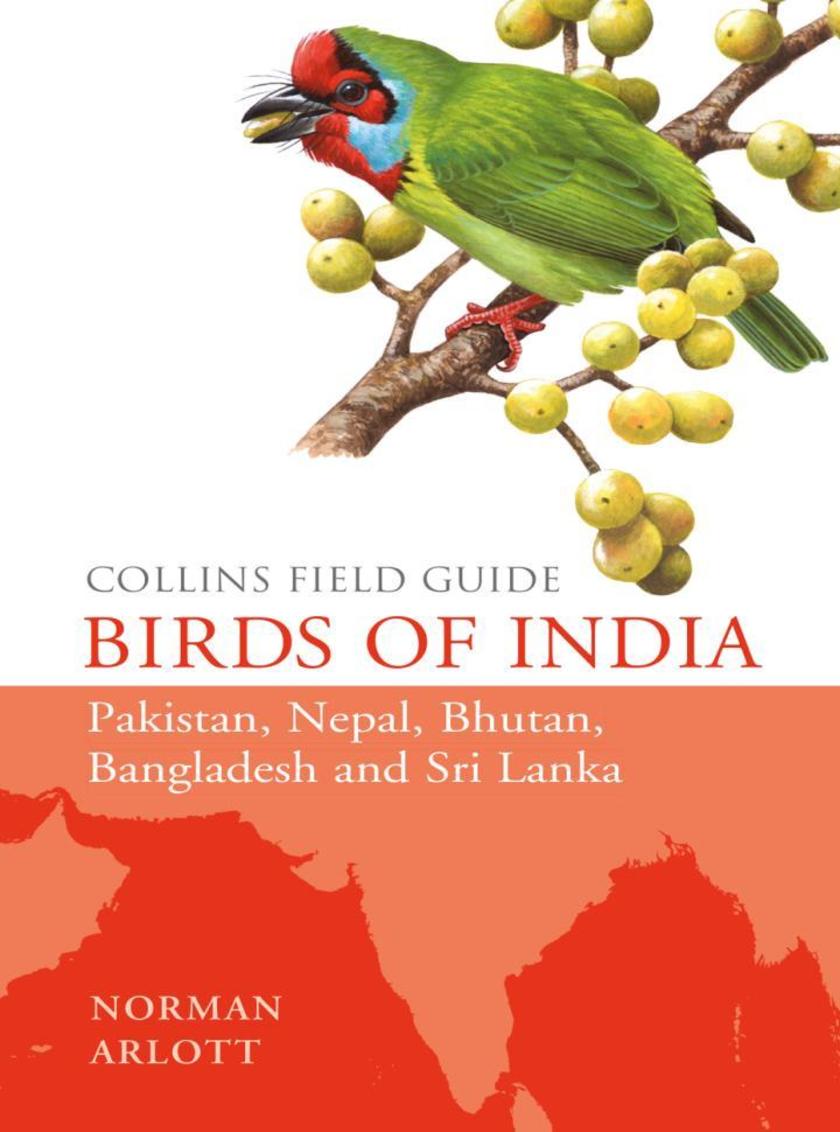
Birds of India (Collins Field Guide)
¥221.02
This comprehensive new field guide is an excellent addition to the world-renowned series – the ultimate reference book for travelling birdwatchers. Every species of bird you might encounter in Pakistan, India, Nepal, Bhutan, Bangladesh, Sri Lanka, the Andaman Islands, the Nicobar Islands and the Maldives is featured, apart from non-established introductions. Beautiful artwork depicts their breeding plumage, and non-breeding plumage when it differs significantly. The accompanying text concentrates on the specific characteristics and appearance of each species that allow identification in the field, including voice and distribution maps.
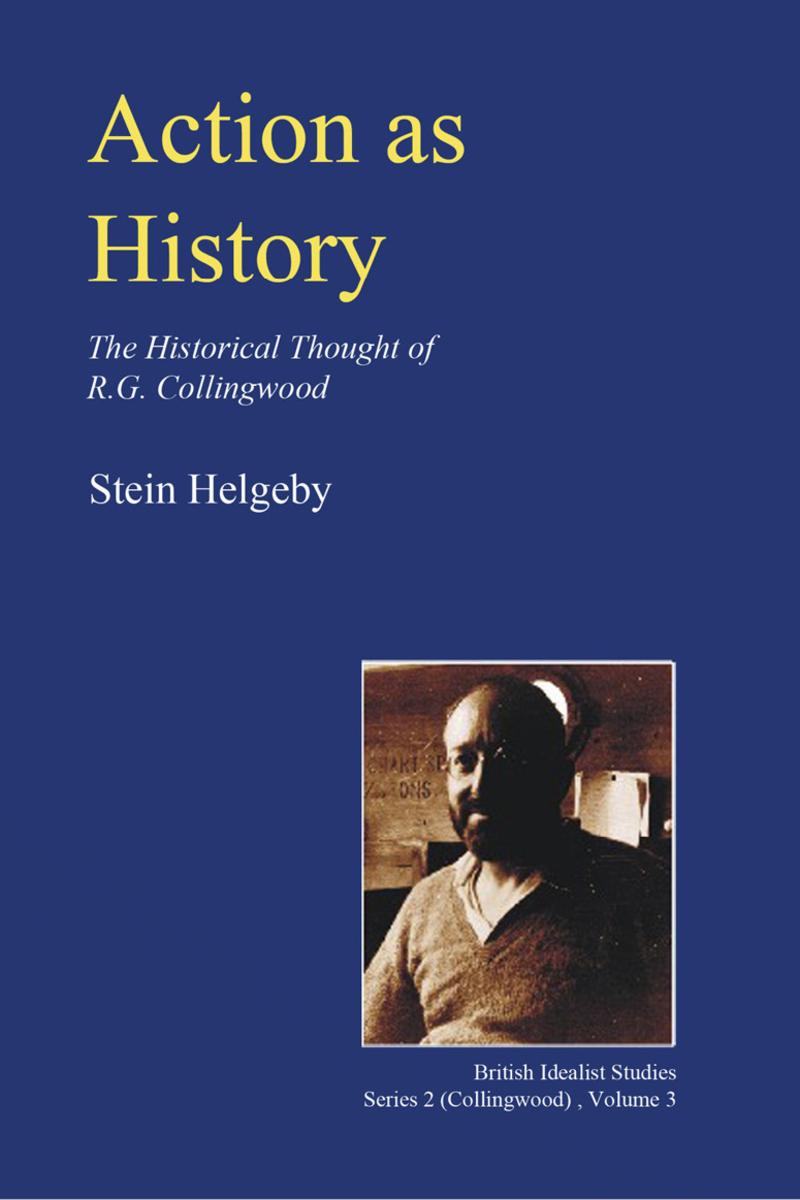
Action as History
¥220.63
R G Collingwood's philosophy of history reflected his historical practices and his moral philosophy. Reflection on historical practice provided him with a theory of knowledge; his moral philosophy provided him with a theory of the object of history. This study shows how Collingwood's concepts of action and history developed together.

Essential Practice for Healthcare Assistants
¥220.63
This book is specifically aimed at healthcare assistants, and is a comprehensive text covering all aspects of care of the patient.It is written by healthcare assistants and cover the a wide range of topics:* Safety issues* Basic patient and residential care* Special care* Mental health* Learning disabilities* Paediatrics* Women and maternity* Men's care* Caring for carers* Home health care* Lifting and moving patients* Death and dying.

Encyclopedia of Aerodynamics
¥220.63
The Encyclopedia of Aerodynamics was written for pilots at all levels from private pilot to airline pilot, military pilots and students of aerodynamics as a complete reference manual to aerodynamic terminology. General aerodynamic text books for pilots are relatively limited in their scope while aerodynamic text books for engineering students involve complex calculus. The references in this book, The Encyclopedia of Aerodynamics, are clearly described and only basic algebra is used in a few references but is completely devoid of any calculus - an advantage to many readers. Over 1400 references are included with alternative terms used where appropriate and cross-referenced throughout. The text is illustrated with 178 photographs and 96 diagrams. The Encyclopedia of Aerodynamics is an ideal aerodynamic reference manual for any pilot's bookshelf.
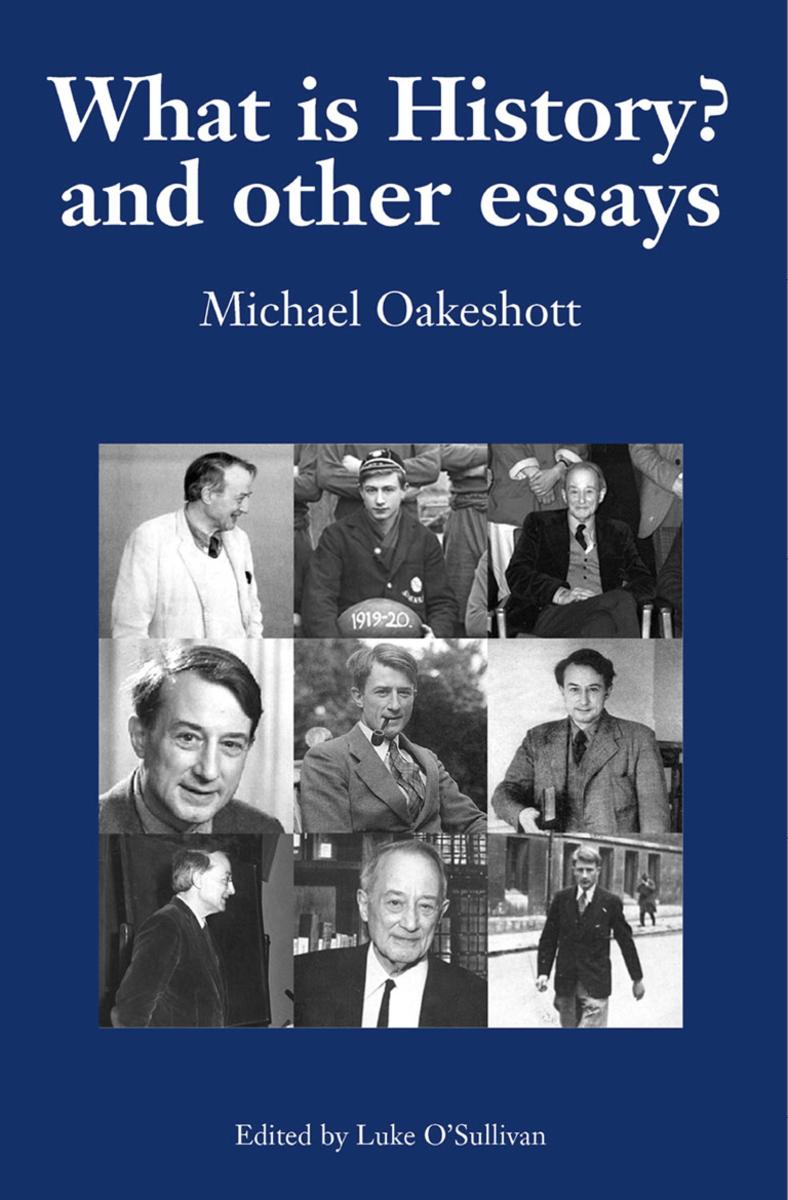
What Is History?
¥220.63
This highly readable new collection of thirty pieces by Michael Oakeshott, almost all of which are previously unpublished, covers every decade of his intellectual career, and adds significantly to his contributions to the philosophy of historical understanding and political philosophy, as well as to the philosophy of education and aesthetics. The essays were intended mostly for lectures or seminars, and are consequently in an informal style that will be accessible to new readers as well as to those already well acquainted with Oakeshott's works. Early pieces include a long essay 'On the Relations of Philosophy, Poetry, and Reality', and Oakeshott's comments on 'The Cambridge School of Political Science' through which he himself had passed as an undergraduate. The collection also reproduces a substantial wartime essay 'On Peace with Germany'. There are two new essays on the philosophy of education, and the essay which gives the work its title, 'What is History?', is just one of over half a dozen discussions of the nature of historical knowledge. Oakeshott's later sceptical, 'hermeneutic', thought is also well represented by pieces such as 'What is Political Theory?' and 'The Emergence of the History of Thought.' Reviews of books by English and European contemporaries such as Butterfield, Hayek, Voegelin, and Arendt also help to place him in context more clearly than before. The book will be indispensable for all Oakeshott's readers, no matter which area of his thought concerns them most.

Early Political Writings 1925-30
¥220.63
Michael Oakeshott (1901-90) made his reputation as a political philosopher, but for a long time it seemed as if he had little interest in politics before 1945. His major pre-war work, Experience and its Modes (1933) was an examination of the nature of philosophy and its relation to other forms of thought that made almost no mention of politics. However, it has become increasingly clear that this initial judgment was misleading. A posthumous collection of early essays, Religion, Politics, and the Moral Life (1993), proved that political philosophy was a lifelong concern. Nevertheless, the belief that Oakeshott was relatively uninterested in politics, at least in the 1920s, has persisted. This volume dispels that notion for good. It contains two previously unpublished works, a manuscript entitled 'A Discussion of some Matters preliminary to the Study of Political Philosophy', and the first version of a course of lectures on 'The Philosophical Approach to Politics' that Oakeshott gave between 1928 and 1930. These works establish that politics was a central concern in the first decade of his intellectual career, and show beyond any doubt that the ideas of Experience and its Modes actually grew out of Oakeshott's prior philosophical interest in politics.
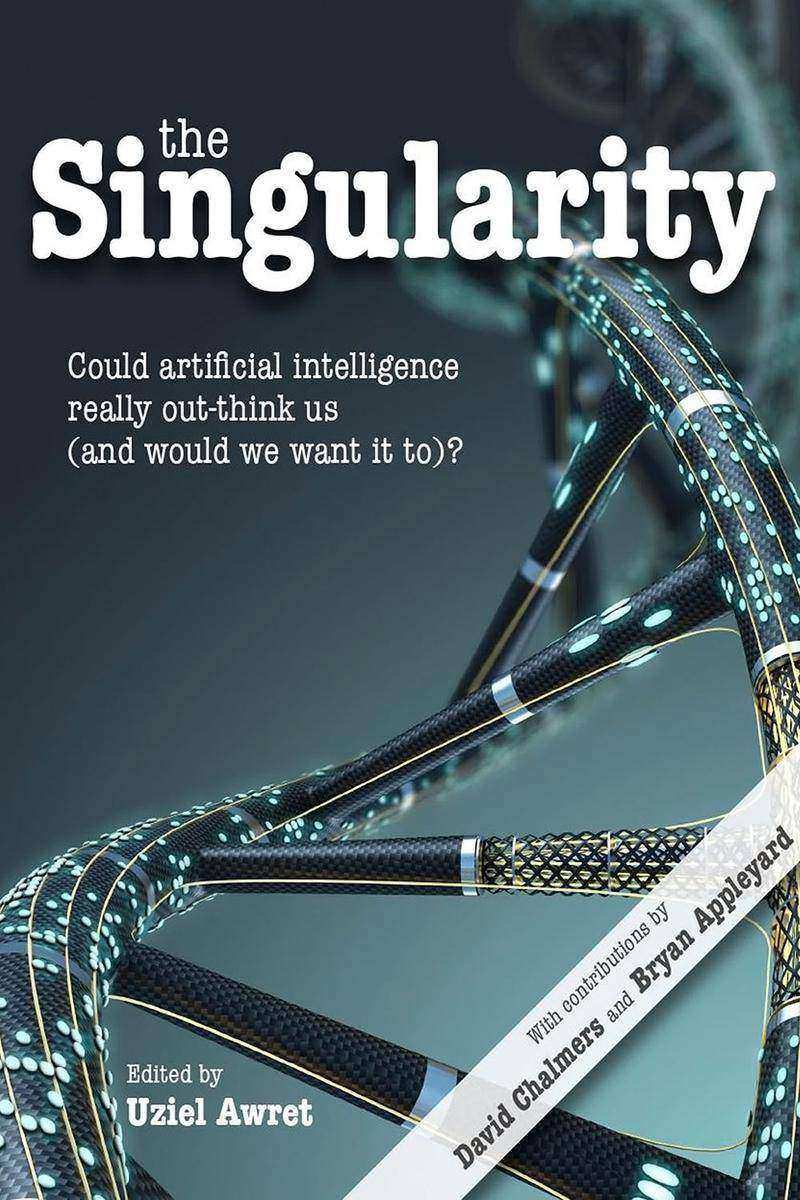
Singularity
¥220.63
This volume represents the combination of two special issues of the Journal of Consciousness Studies on the topic of the technological singularity. Could artificial intelligence really out-think us, and what would be the likely repercussions if it could? Leading authors contribute to the debate, which takes the form of a target chapter by philosopher David Chalmers, plus commentaries from the likes of Daniel Dennett, Nick Bostrom, Ray Kurzweil, Ben Goertzel, Frank Tipler, among many others. Chalmers then responds to the commentators to round off the discussion.
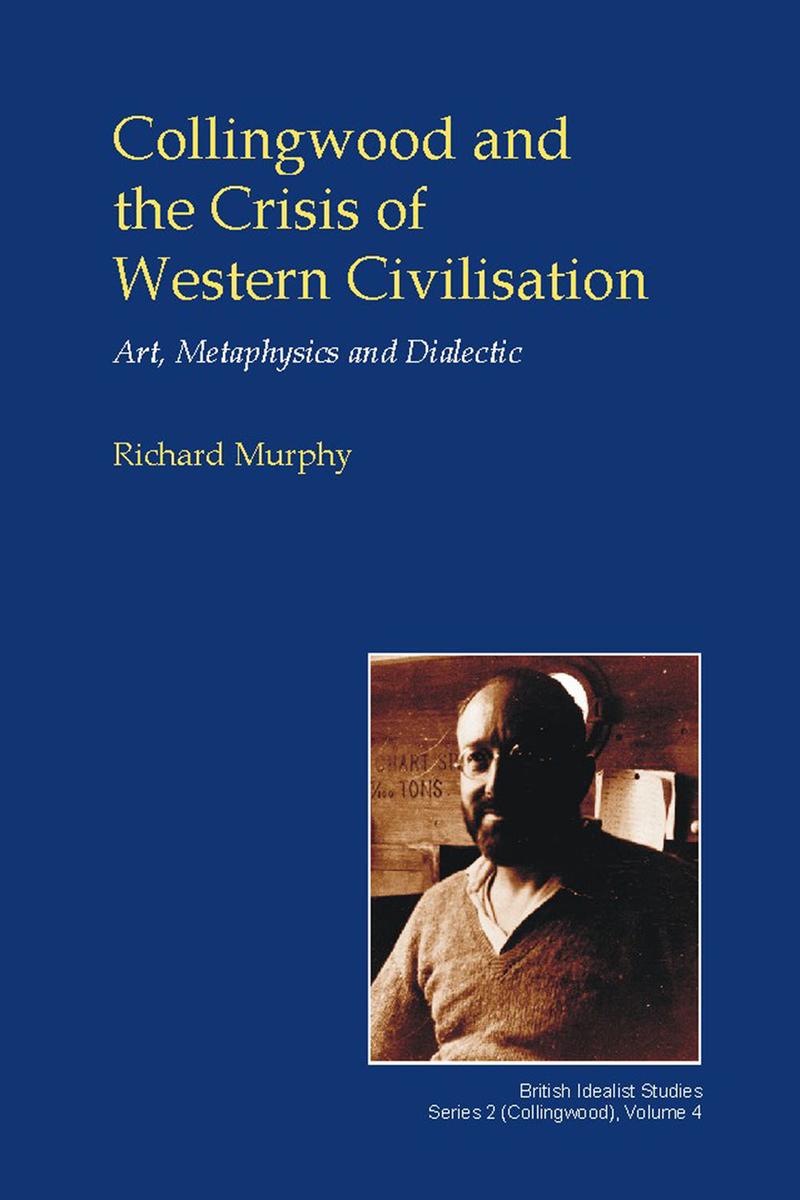
Collingwood and the Crisis of Western Civilisation
¥220.63
This book argues that R.G. Collingwood's philosophy is best understood as a diagnosis of and response to a crisis of Western civilisation. The various and complementary aspects of the crisis of civilisation are explored and Collingwood is demonstrated to be working in the traditions of Romanticism and 'historicism'. On these subjects, the theories of Collingwood and Ortega y Gasset are contrasted with those of Nietzsche and Weber.

In Defence of Modernity
¥220.63
Although Oakeshott's philosophy has received considerable attention, the vision which underlies it has been almost completely ignored. This vision, which is rooted in the intellectual debates of his epoch, cements his ideas into a coherent whole and provides a compelling defence of modernity.The main feature of Oakeshott's vision of modernity is seen here as radical plurality resulting from 'fragmentation' of experience and society. On the level of experience, modernity denies the existence of the hierarchical medieval scheme and argues that there exist independent ways of understanding our world, such as science and history, which cannot be reduced to each other. On the level of society, modernity finds expression in liberal doctrine, according to which society is an aggregate of individuals each pursuing his or her own choices. For Oakeshott, to be modern means not only to recognise this condition of radical plurality but also to learn to appreciate and enjoy it.Oakeshott did not think that it was possible to find a comprehensive philosophical justification for modernity, therefore the only way to preserve modern civilisation seemed to be an appeal to sentiment. As a consequence he was a passionate defender of liberal education as the best way to underwrite the 'conversation of mankind.'
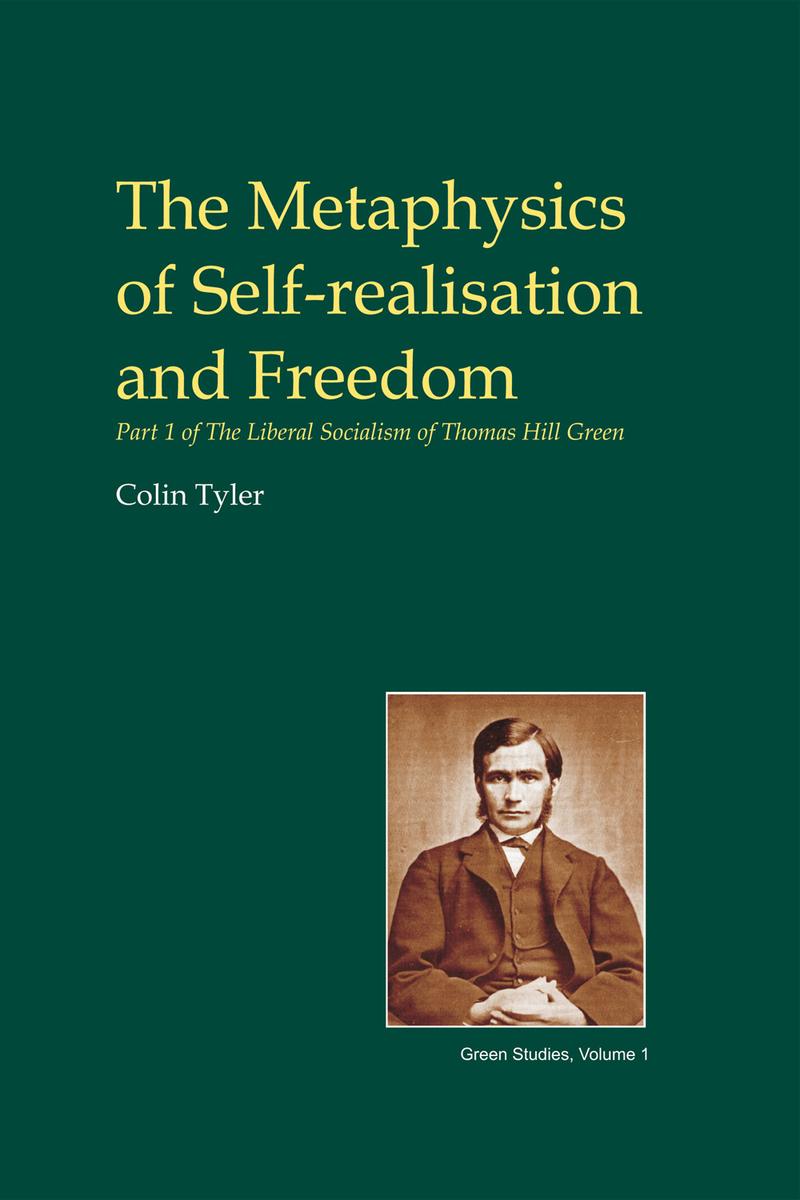
Metaphysics of Self-realisation and Freedom
¥220.63
This first part of Colin Tyler's new critical assessment of the social and political thought of T.H. Green (1836-1882) explores the grounding that Green gives to liberal socialism. Tyler shows how, for Green, ultimately, personal self-realisation and freedom stem from the innate human drive to construct a bedrock of fundamental values and commitments that can define and give direction to the individual's most valuable potentials and talents. This book is not only a significant contribution to British idealist scholarship. It highlights also the enduring philosophical and ethical resources of a social democratic tradition that remains one of the world's most important social and political movements, and not least across Britain, Europe, North America, India and Australia. Dr Colin Tyler is Reader in Politics at the University of Hull and joint convenor of the Centre for British Idealism.
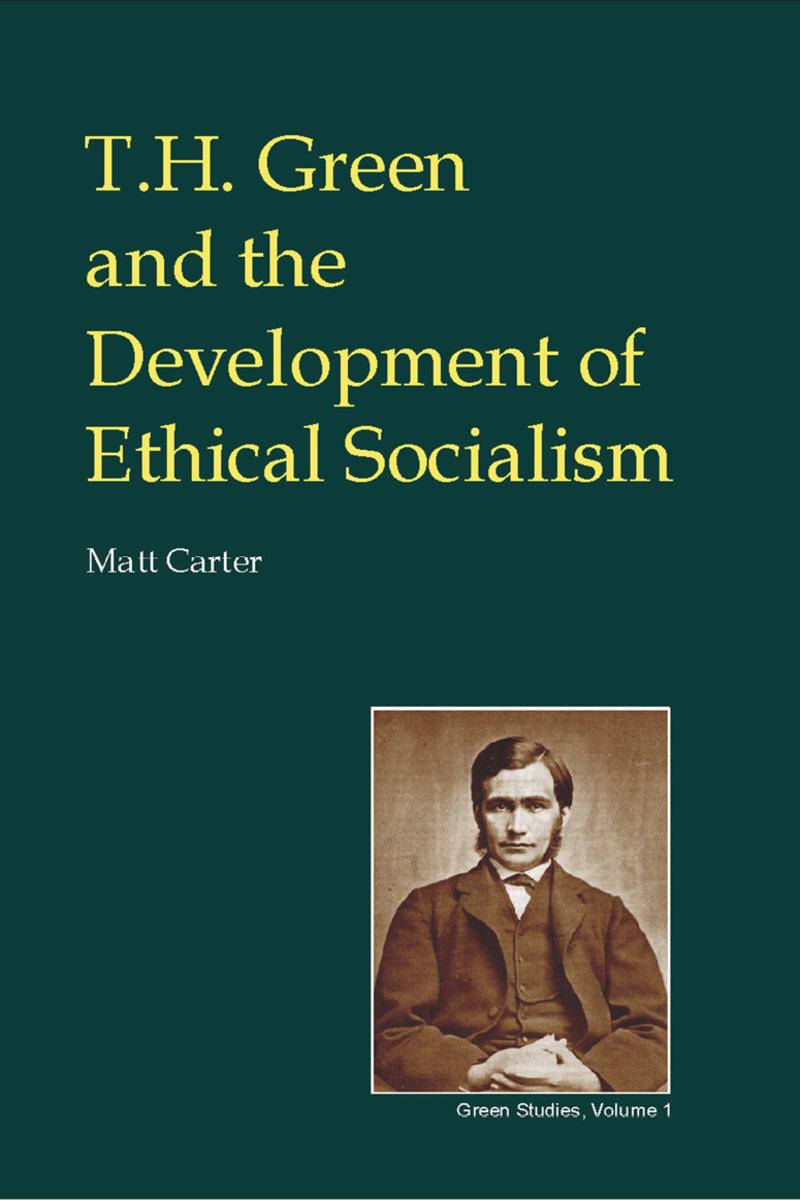
T.H. Green and the Development of Ethical Socialism
¥220.63
This book uncovers the philosophical foundations of a tradition of ethical socialism best represented in the work of R.H. Tawney, tracing its roots back to the work of T.H. Green. Green and his colleagues developed a philosophy that rejected the atomistic individualism and empiricist assumptions that underpinned classical liberalism and helped to found a new political ideology based around four notions: the common good; a positive view of freedom; equality of opportunity; and an expanded role for the state. The book shows how Tawney adopted the key features of the idealists' philosophical settlement and used them to help shape his own notions of true freedom and equality, thereby establishing a tradition of thought which remains relevant in British politics today.
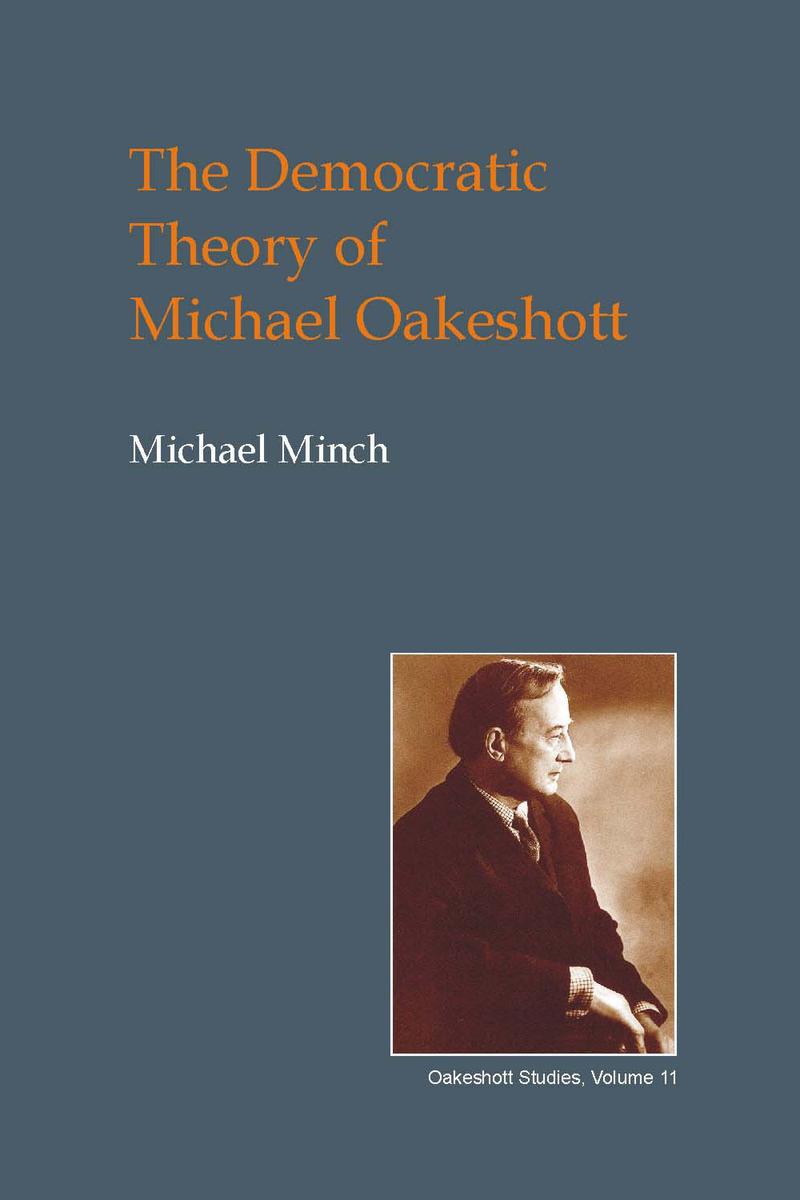
Democratic Theory of Michael Oakeshott
¥220.63
his book offers a description, explanation, and evaluation of Michael Oakeshott's democratic theory. He was not a democratic theorist as such, but as a twentieth-century English political theorist for whom liberal theory held deep importance, his thought often engaged democratic theory implicitly, and many times did so explicitly. The author's project penetrates two renewals. The first is the revitalization of interest in Oakeshott, and the second is the renewal of democratic theory which began in the 1980s. In respect to this latter renewal, the book engages the deliberative turn in democratic theory. These revivals create the context for this new look at Oakeshott. To state the matter as a problem, one might say that in light of new and fecund democratic theory, it is a problem for political theory if one of the most important political theorists of the twentieth century is left out of the discourse insofar as he has something relevant to say about deliberative democracy. It is of no small importance that almost all the work in democratic theory being done these days is of the deliberative/discursive kind, or responses to it. That is, deliberative theory is driving the agenda of democratic theory. The author argues that Oakeshott does indeed have something relevant to say which is applicable to this democratic theory.

Michael Oakeshott on Hobbes
¥220.63
Michael Oakeshott is widely recognised to be one of the most original political philosophers of the twentieth century. He also developed a very influential interpretation of the ideas of the great seventeenth century philosopher Thomas Hobbes. While many commentators have noted the importance of Hobbes for understanding Oakeshott's thought itself, this is the first book to provide a systematic interpretation of Oakeshott's philosophy by paying close attention to all facets of Oakeshott's reading of Hobbes.On the surface, Oakeshott, the philosophical idealist and critic of rationalism in politics, would seem to have little in common with Hobbes, who is often regarded as a classic materialist and rationalist philosopher. This work shows, however, that despite appearances, there are many basic affinities between the two thinkers and that Oakeshott brought to the surface aspects of Hobbes's thought that had previously been overlooked by Hobbes scholars.The development of Oakeshott's own theory is shown to mirror changes in his reading of Hobbes and many of the distinctive features of Oakeshott's thought including the modal and sceptical conception of human knowledge, the 'morality of individuality', the theory of civil association, and the critique of rationalism all find a fascinating focal point in his writings on Hobbes. Some attention is also paid to Oakeshott's religious ideas, indicating what they share with Hobbes's philosophy of religion. The book situates Oakeshott's reading in relation to some other important twentieth century interpretations of Hobbes and examines its significance for broader debates in political theory and the history of ideas.
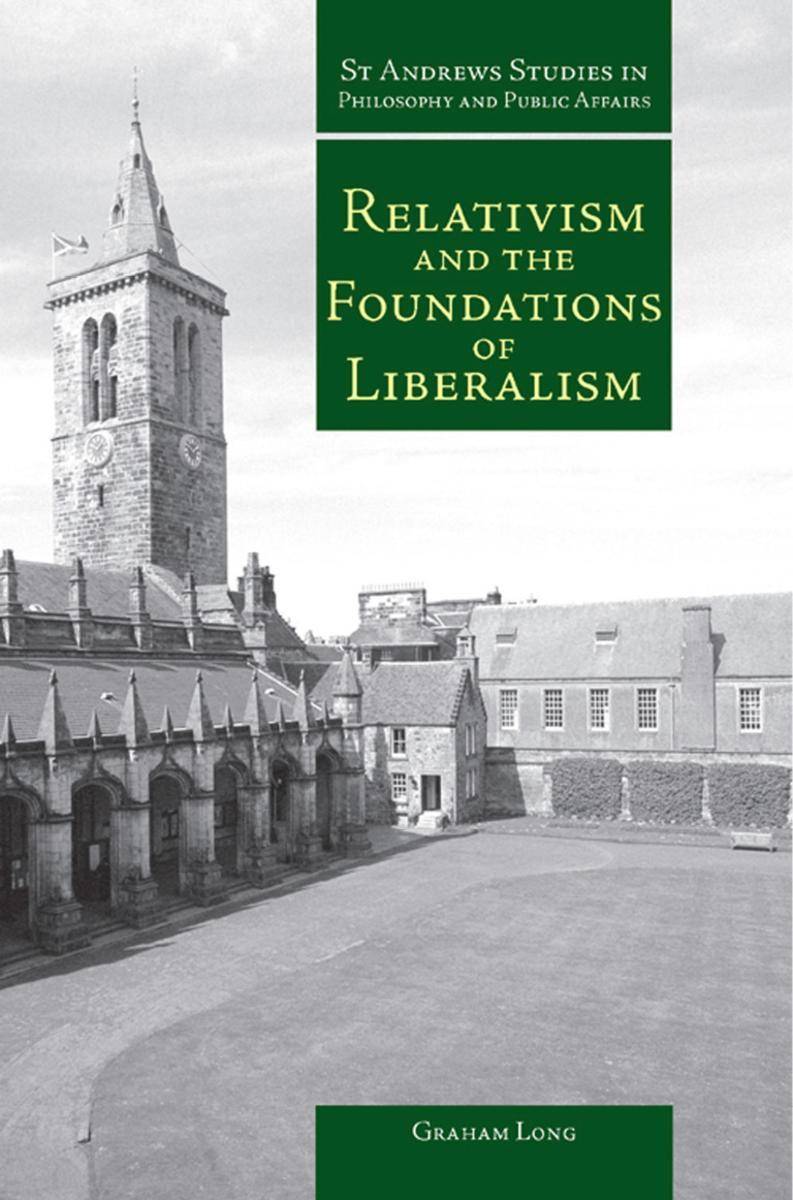
Relativism and the Foundations of Liberalism
¥220.63
Moral relativism is often regarded as both fatally flawed and incompatible with liberalism. This book aims to show why such criticism is misconceived. First, it argues that relativism provides a plausible account of moral justification. Drawing on the contemporary relativist and universalist analyses of thinkers such as Harman, Nagel and Habermas, it develops an alternative account of 'coherence relativism'. Turning to liberalism, the book argues that moral relativism is not only consistent with the claims of contemporary liberalism, but underpins those claims. The political liberalism of Rawls and Barry is founded on an unacknowledged commitment to a relativist account of justification. In combining these two elements, the book offers a new understanding of relativism, and demonstrates its relevance for contemporary liberal thought.




 购物车
购物车 个人中心
个人中心



